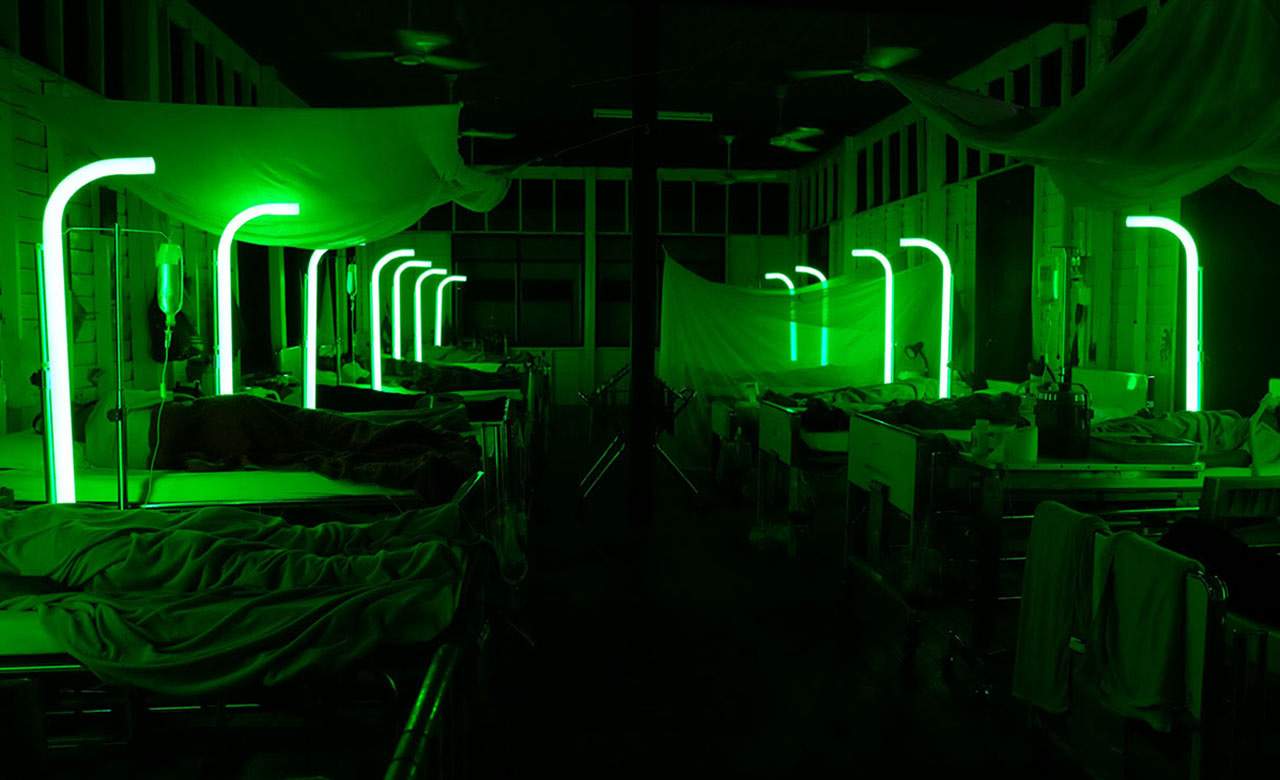Cemetery of Splendour
Take a dreamlike journey with master Thai filmmaker Apichatpong Weerasethakul.
Overview
If watching a film is an experience rather than an act of mere observation, then watching a film by Apichatpong Weerasethakul is like bathing underneath a waterfall of sound and vision rather than simply sticking your toes in a pool. The contemplative might be his domain, but so is the sensory. The Thai filmmaker's works are designed to wash over his viewers, and from the moment they start you have no choice but to let them.
Cemetery of Splendour, the latest entry on his resume, is no exception to this rule. It's a film you dissolve into, like a dream you might not want to wake up from, one that's always trying to pull you further and further below the surface. Like Weerasethakul's previous film, the Palme d'Or winning Uncle Boonmee Who Can Recall His Past Lives, this new work combines a patient pace, hypnotic images and details both personal and political, creating a lavish and leisurely package that's both melancholy and joyous..
The sensation Cemetery of Splendour inspires in those watching is rather appropriate, since its protagonist, housewife turned volunteer nurse Jenjira (Jenjira Pongpas Widner), falls under a similar spell. While caring for soldiers afflicted with sleeping sickness, she warms to one man in particular (Banlop Lomnoi), with whom she feels a connection. Assisted by a medium, Keng (Jarinpattra Rueangram), Jen tries to communicate with her slumbering patient.
So far, so straightforward — and Cemetery of Splendour does present perhaps Weerasethakul's most linear narrative. Weaving in statues coming to life and ghosts of times gone by, it swiftly proves far from conventional, the filmmaker's experimental sensibilities as present as ever. Here, a sense of place is paramount, particularly Jen's ties with the site the hospital stands on. Her bond with her location actually mirrors her director, who sets the film in his own hometown of Khon Kaen, and once again fashions his feature as a statement about his country.
Indeed, think of Cemetery of Splendour as a combination of cinema and poetry, its sights and sounds striking in their own right, but continually conjuring up even more evocative feelings the longer they linger — and this is a movie that knows how to linger. That might sound like a cliché, especially when a feature is as simultaneously slow and sumptuous as this. However in Weerasethakul's efforts, the language of regular films doesn't really apply. Once again, the applauded auteur has made something that almost defies description as it burns its images into your eyeballs. There hasn't been a more meditative and mesmerising image in recent cinema than the line of neon-lit beds that proves the movie's visual centrepiece — and when you're looking at them, you always know you're doing more than just watching.





